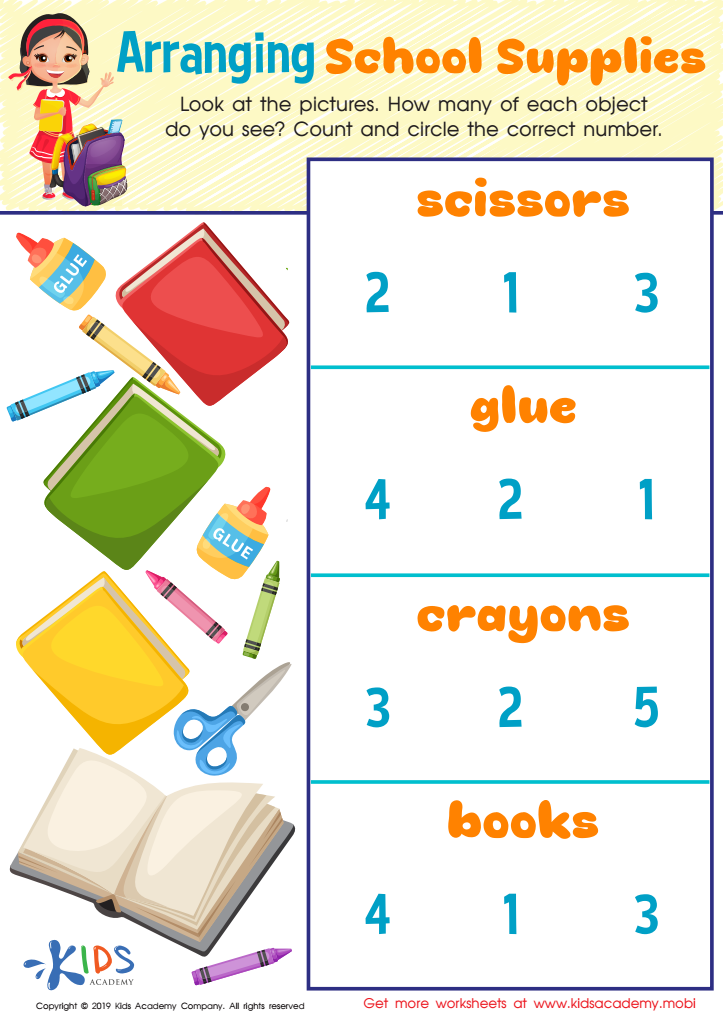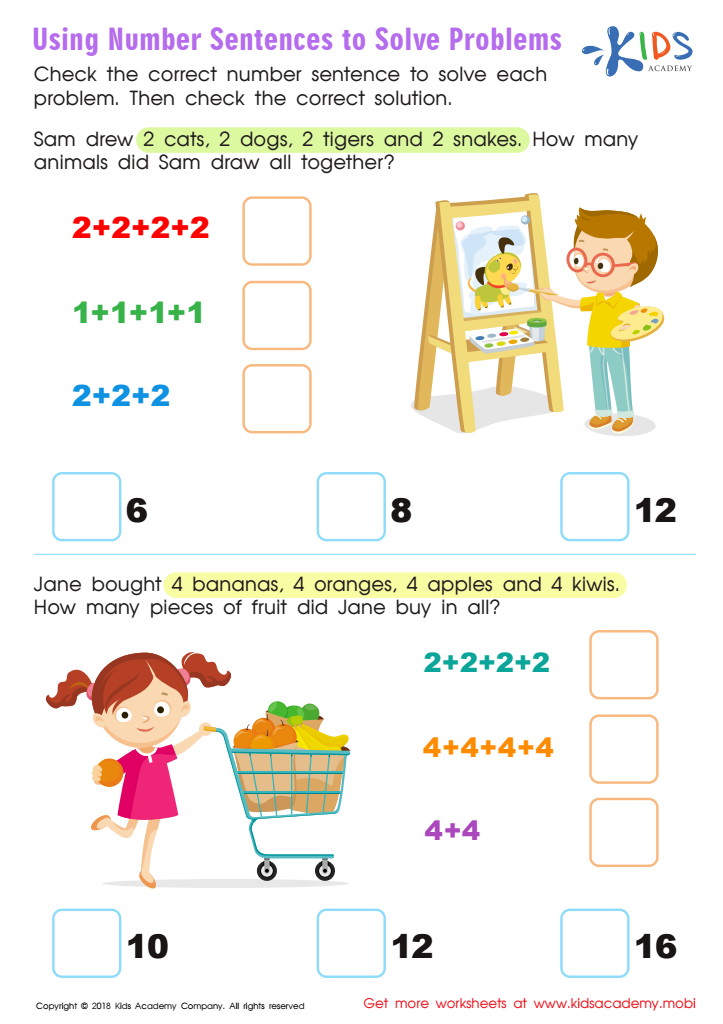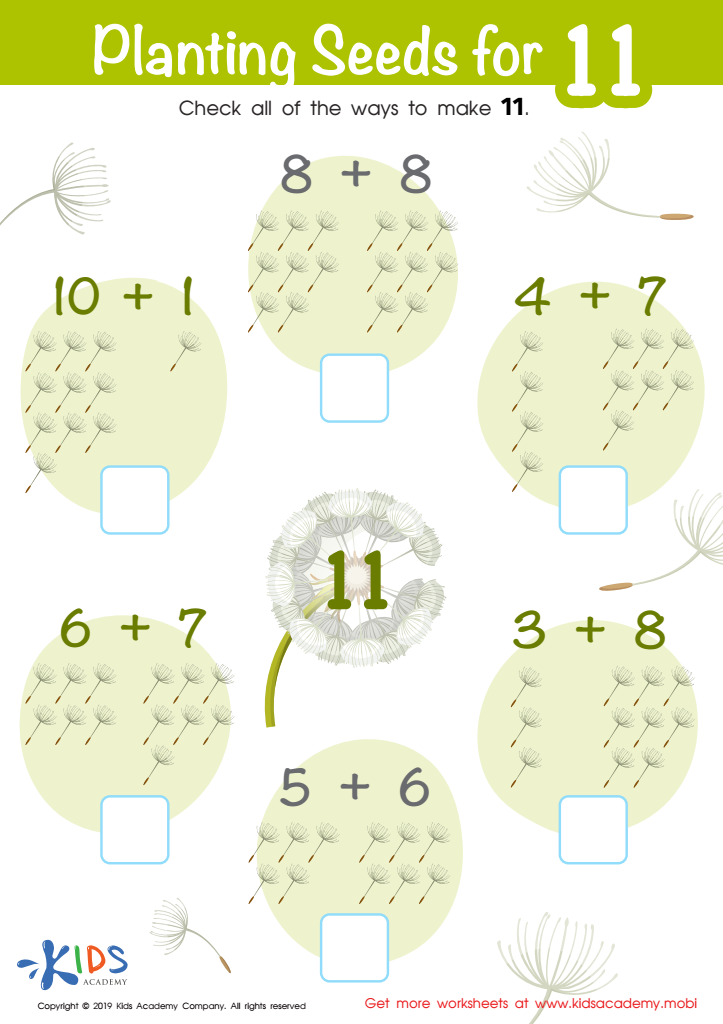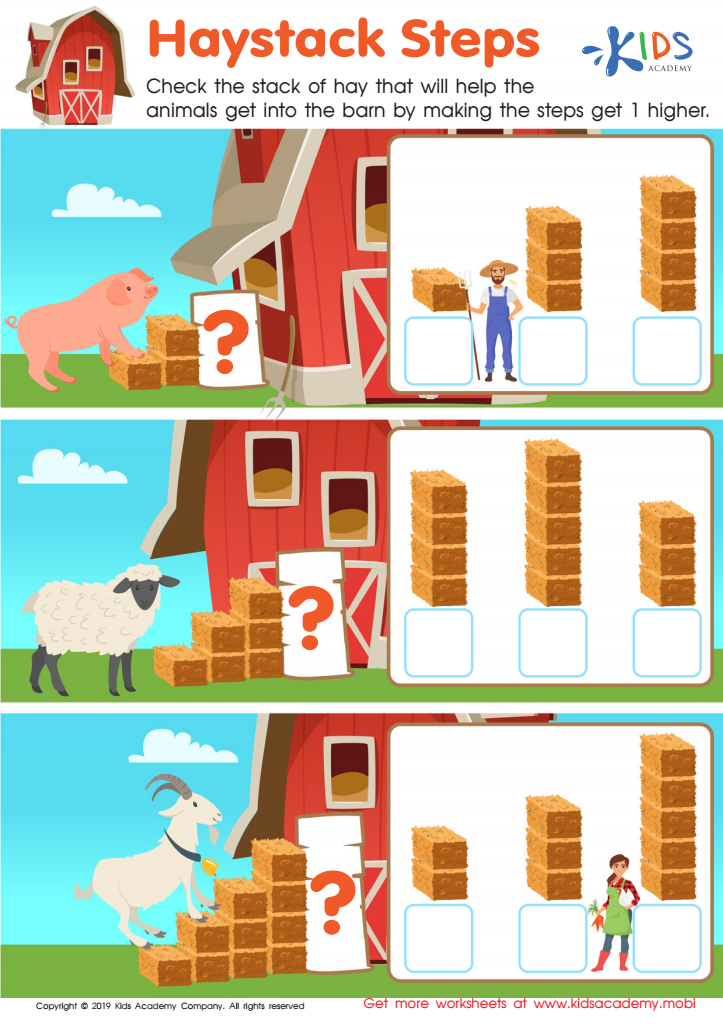Understanding Sequences Easy Math Worksheets for Ages 4-5
4 filtered results
-
From - To
Welcome to our "Understanding Sequences Easy Math Worksheets" designed specifically for children ages 4-5! These engaging worksheets introduce young learners to the concept of sequences through fun and relatable activities. Each exercise is crafted to promote critical thinking and enhance early math skills while keeping learning enjoyable. Kids will explore patterns through colorful visuals and simple tasks that spark their curiosity. Ideal for parents and educators, these worksheets serve as a fantastic resource for fostering a strong mathematical foundation. Dive into a world of fun learning today and help your child master the basics of sequences effortlessly!


Arranging School Supplies Worksheet


Using Number Sentences to Solve Problems Worksheet


Planting Seeds for 11 Worksheet


Haystack Steps Worksheet
Understanding sequences is crucial for young learners aged 4-5 as it lays the foundation for essential mathematical skills. At this stage, children are developing their ability to recognize patterns, which is key to further mathematical concepts. Introducing sequences through engaging activities helps children grasp ideas such as order and basic representations, essential for cognitive growth.
For parents and teachers, caring about sequences in math instruction means nurturing critical thinking and problem-solving abilities in children. By recognizing patterns in numbers, shapes, or everyday events, children enhance their logical reasoning, which supports their overall academic performance. Beyond academics, these skills also foster patience and focus.
Additionally, sequences are often integrated into everyday life, from daily routines to understanding calendars and time management. Early exposure helps children navigate these concepts better, preparing them not just for advanced math, but for real-world scenarios.
By promoting understanding of sequences in young learners, adults play a vital role in shaping confident, competent future students. As children progress, these early math concepts pave the way for more complex ideas in higher grades, making foundational learning essential and relevant.

 Assign to My Students
Assign to My Students


.jpg)













